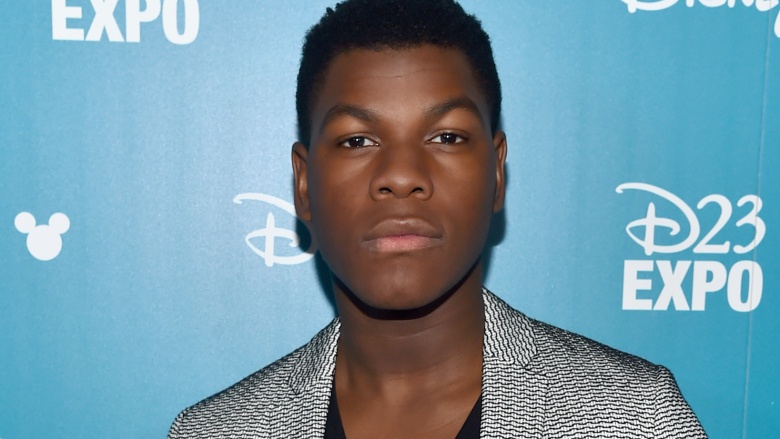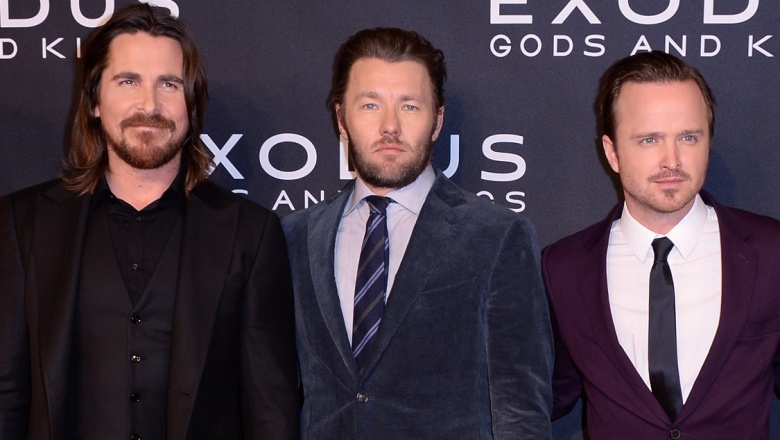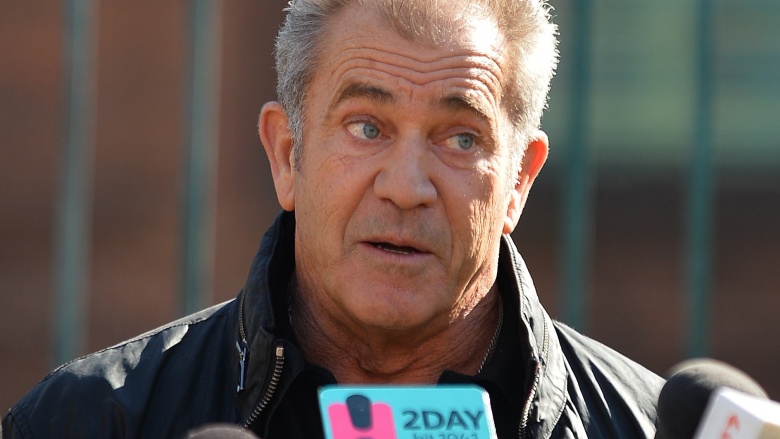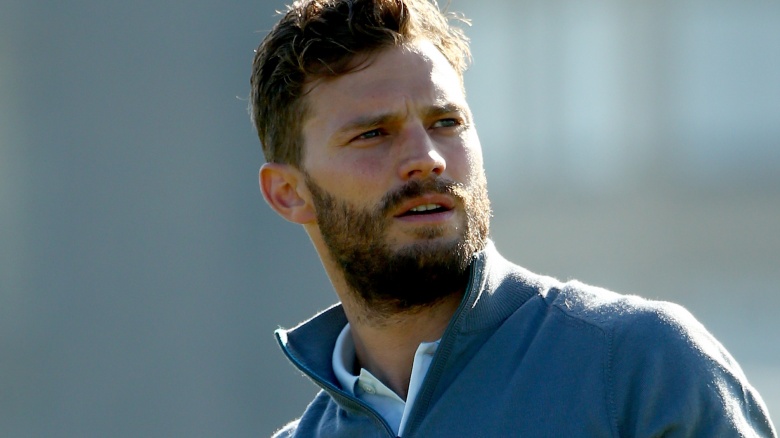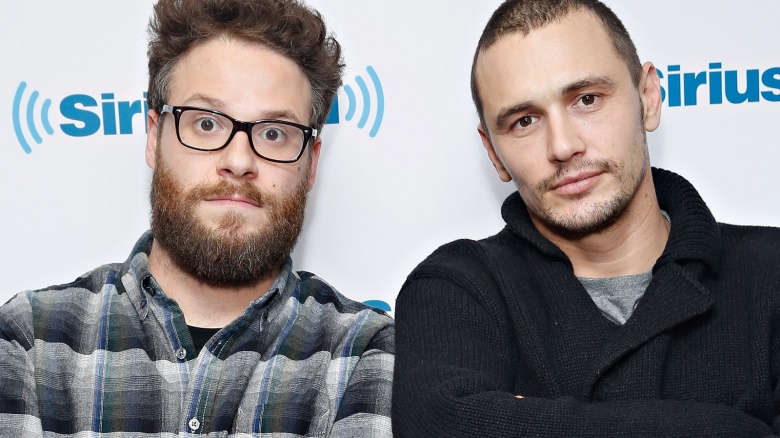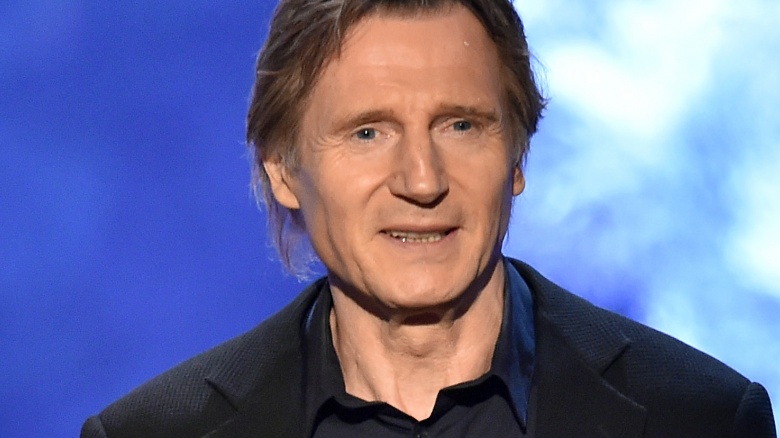Actors Whose Films Have Been Boycotted
At the time of this writing, police unions across the U.S. are calling for a boycott of Quentin Tarantino's The Hateful Eight in response to the director's vocal opposition of alleged brutality cases. And this isn't the first time a filmmaker or star has been the flashpoint of public outcry. If an actor takes a controversial role, or makes questionable statements during the promotion of a film, people are going to notice and quickly spread the word. The Internet age has ushered in a time where a holiday coffee cup can get people riled up enough to boycott their beloved peppermint mocha lattes, so it's no surprise that actors also have to walk the razor's edge of political correctness. Here are a few who felt the pain of the picket line.
John Boyega - Star Wars: Episode VII - The Force Awakens (2015)
The long-awaited Star Wars: Episode VII might be one of the most talked about sequels in movie history. So, when the first teaser came out, revealing—GASP!—a black stormtrooper, the Internet lost its collective stuff. Well, not actually. According to Vox, the whole thing got started by two white supremacists on Twitter and was intentionally amplified by trolls and accidentally amplified by people who were genuinely outraged. Regardless of intent, the Internet was ablaze for a few days while #BoycottStarWarsVII was used for outcry, jokes, and tired exasperation. But even if this was a true call for protest, was there even a chance of it making a dent in the box office? At the projected gross already over $2 billion dollars, which doesn't even include merchandising, we think the Force was pretty weak with that one.
Christian Bale, Joel Edgerton, and Aaron Paul - Exodus: Gods and Kings (2014)
The all-white central cast of Exodus: Gods and Kings found themselves at the center of controversy over their roles portraying prominent Egyptians from the Bible. Ironically, Rachel Dolezal—the woman who would later find herself ensnared in her own racial controversy—called for a boycott of the film, calling it "highly offensive" and "robbing and shredding ancestry and history," according to The Independent. Cue Twitter and the wrath the hashtag, because #BoycottExodusMovie started trending, prompting responses from director Ridley Scott and Christian Bale, who plays Moses. Despite Bale's ineffectual attempts to point out that ancient Egyptians were "a melting pot between Europe and the Middle East and North Africa," the film bombed, which is hilarious. That's because it probably had nothing to do with the boycott, because it was awful, which completely shatters Bale's second and arguably less socially aware point that nobody would go see a movie like this if big stars weren't in it. Well, with a budget somewhere in the $140 million range and a lifetime gross of $65 million, we'd say it's time for Christan Bale to reassess his box office draw.
Mel Gibson And Jim Caviezel - The Passion of the Christ (2004)
Most of the heat against The Passion of the Christ, Mel Gibson's ultra-violent portrayal of the crucifixion of Jesus, came from Jewish groups who found the film to be offensively anti-Semitic. Alternatively, Christian groups overwhelmingly supported the film, despite it's at-times gruesome depictions of torture. Though Gibson had initial trouble finding distribution for the film, eventually studios couldn't resist the massive reception the film was getting on a smaller scale, so they jumped in on the worldwide release. For lead actor Jim Caviezel, however, the experience was tumultuous for several reasons. There was the initial objection to the casting of a white man to play Jesus, who was born in Bethlehem, which is now a Palestinian city. And while his performance was generally praised, he claimed the aftermath saw him being "rejected in my own industry," according to The Orlando Sentinel. The Hollywood blacklist is a well-known entity—just ask any star in the 1940s who may have ever been suspected of being a member of the communist party—which meant Jim Caviezel felt the sting of two separate boycotts both before and after the movie.
Jamie Dornan - Fifty Shades of Grey (2015)
If you had to guess who was responsible for boycotting Fifty Shades of Grey, who would you guess it was? Religious groups? Concerned grandmothers? The International Coalition of Husbands Who Didn't Want To Have To Watch That Crap? Well, you'd be wrong on all counts, because it was actually BDSM enthusiasts. Folks who are into the kinky business of being tied up, whipped, and either being subjugated by or domineering over one another didn't feel the film accurately portrayed their, um, hobby. Cinema Blend reported that Jamie Dornan tried to fan the flames by admitting he'd gone to sex dungeons to "get into the mindset of Christian Grey." Yeah, Jamie, we're sure that's why you went.
Setting aside objections being screamed from behind zippered latex masks, another boycott, started by domestic violence awareness groups, created #50dollarsnot50shades, which encouraged people to donate $50 (their approximated price of a Valentine's Day date) to charities that help battered women. That price tag seems like a stretch, since the card alone can cost almost half that if it has enough glitter on it, but it also seems like a stretch to accuse Fifty Shades of Grey of glorifying actual abuse. Meanwhile: glorifying poor taste? Awful direction? Laughable dialogue? On those counts, that's a definite yes, yes, and yes.
Seth Rogen And James Franco - The Interview (2014)
Coinciding with the devastating hack that revealed a slew of their unsavory emails, Sony's highly controversial film, The Interview, was used as a leverage play by the hackers who stated "the studio would face no further torment from the group if they didn't release the film," according to the website, MakeUseOf. Meanwhile, amidst the waiting period when the studio was debating over releasing the film at all, Carmike Theaters came under fire for preemptively stating they would not screen the film regardless of Sony's decision. This sparked outrage and a call to boycott Carmike Theaters from people who believed that neither Carmike nor Sony should have caved to the terroristic threats, which meant the film had now caused a simultaneous double boycott of sorts. James Franco and Seth Rogen were forced to hire security teams and cancel media appearances when the threats against them actually took on a surprisingly scary reality. Ultimately, Sony decided against a wide theater release, choosing instead to put the movie out on multiple streaming devices, while a small number of independent theaters chose to show the film. Some people accuse the whole situation of being a marketing ploy to drum up social buzz, while others believe the hack itself was a hoax meant to implicate North Korea. We'll probably never know the real story, but we know that any part of America bending its will to North Korea on account of something Seth Rogen did is a shame that will hang around our necks for a very long time.
Liam Neeson - All Future Films
When Liam Neeson decided to speak out against American gun culture, he somehow missed that he was squaring up against a formidable adversary—gun manufacturer, PARA USA. Having provided guns for Neeson's Taken 3, PARA USA said they'd never do that again in the wake of the actor's statements that included, amongst others, "There's over 300 million guns. Privately owned, in America. I think it's a [expletive] disgrace." PARA USA went even further and called for "an industry boycott" of all Neeson's future films which may not have the effect they're looking for. Since the Taken trilogy started, Neeson has become one of Hollywood's most bankable celebrities, with even the laughably bad Non-Stop pulling in almost $100 million. On top of that, Neeson has proven he's at his best armed only with karate chops and knee strikes, so go ahead, PARA USA, do your worst. But if you find yourself in an excruciating armbar while your weapons are instantaneously disassembled down to the springs, don't say you weren't warned.


